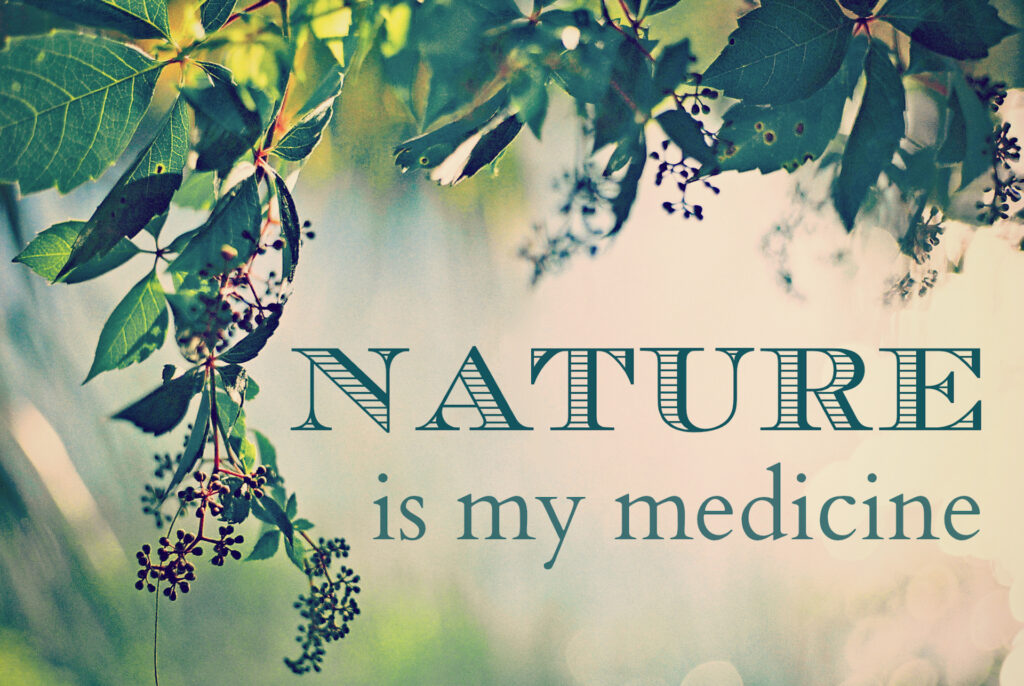In this article, we will explore the concept of nature therapy, discuss its application and evaluation, and provide resources for those who are interested in pursuing training in this area.
Contents
Understanding Nature Therapy
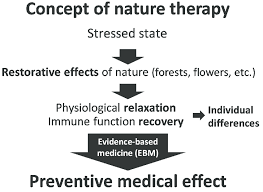
Nature therapy, also known as ecotherapy, is a form of therapy that uses nature and the natural world to help people improve their mental health. It is based on the theory that humans are an integral part of nature, and that interacting with nature can have a positive impact on our psychological well-being.
Theory Behind Nature Therapy
The theory behind nature therapy is that humans have an innate need to connect with nature and that this connection is essential for our mental health. This theory is based on the work of Japanese psychiatrist, Masahiro Mori, who coined the term “the uncanny valley.”
The uncanny valley is a concept that describes the feeling of unease that we experience when we encounter something that appears to be human but is not quite human.
Mori’s work suggests that humans are attracted to things that resemble them. But when those things are not quite human, it can cause a feeling of unease. This theory has been used to explain why people often find robots and other artificial intelligence to be creepy.
Nature And Mental Health
There is a growing body of evidence that supports the idea that nature can have a positive impact on our mental health.
- A study published in Frontiers in Psychology found that spending time in nature can reduce stress, anxiety, and depression.
- Another study, published in the journal Environmental Science and Technology, found that exposure to green space can reduce the risk of developing mental health problems.
Types of Nature Therapy
There are a variety of different techniques that can be used in nature therapy. These techniques can be divided into three main categories:
- Mindfulness-based approaches: These approaches focus on teaching people how to be present at the moment and pay attention to their thoughts and feelings without judgment.
- Experiential approaches: These approaches focus on using nature as a way to explore personal issues and emotions.
- Activity-based approaches: These approaches focus on using nature as a way to improve physical health.
History And Development
Nature therapy has its roots in the early twentieth century when a group of German physicians began using nature as a treatment for their patients with mental illness. This group, known as the Heidelberg school, was led by psychiatrist Carl Jung.
The Heidelberg School was inspired by the work of English physician, Edward Wilson, who developed the theory of biophilia. Biophilia is the idea that humans have an innate need to connect with nature.
The Heidelberg school was also influenced by the work of Austrian psychiatrist, Viktor Frankl. Frankl developed the concept of logotherapy, which is a form of therapy that uses meaning and purpose as a way to heal.
Unfolding Nature Therapy

Nature therapy has continued to evolve since its inception in the early twentieth century. Today, there are several different approaches to nature therapy, all of which share the common goal of using nature to improve mental health.
Who Can It Help
Nature therapy can help people of all ages and backgrounds. It can help treat a wide range of mental health problems, including stress, anxiety, depression, and addiction.
How Does It Work
Nature therapy works by using the natural world to help people achieve their mental health goals. Your therapist will work with you to create a treatment plan that meets your specific needs. This plan may involve activities such as hiking, camping, gardening, or spending time in nature. Thus, techniques used in nature therapy can vary, but they all share the common goal of using nature to improve mental health.
Techniques Used In Nature Therapy
There are several different techniques used in natural therapy, all of which share the common goal of using nature to improve mental health.
Some of the most common techniques used in natural therapy include:
- Forest bathing: This technique involves spending time in nature, typically in a forest, and allowing the senses to be immersed in the natural environment.
- Horticultural therapy: This technique uses plants and gardening as a way to improve mental health.
- Animal-assisted therapy: This technique involves using animals, such as horses or dogs, to help people achieve their mental health goals.
- Nature journaling: This technique involves using nature as a way to journal and reflect on personal thoughts and experiences.
Evaluating Nature Therapy
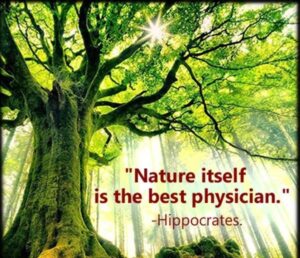
Nature therapy is a relatively new field, and more research will establish its effectiveness. However, there is a growing body of evidence that supports the idea that nature therapy can be an effective treatment for mental health problems.
- Several studies have found that nature therapy can reduce stress, anxiety, and depression.
- Other studies have found that exposure to green space can reduce the risk of developing mental health problems.
Benefits of Nature Therapy
There are several potential benefits of nature therapy. Some of the most well-established benefits include:
- Improving mental health
- Reducing stress, anxiety, and depression
- Reducing the risk of developing mental health problems
Limitations of Nature Therapy
- First, nature therapy is a relatively new field, and not all therapists are trained in this approach.
- Second, nature therapy may not be appropriate for people with certain mental health conditions.
- Third, it is important to find a therapist who you feel comfortable with and who you feel safe with.
Why Consider It
If you are struggling with mental health problems, nature therapy may be a good option for you. It is a relatively new field, but there is a growing body of evidence that supports the idea that it can be an effective treatment for mental health problems. It is important to consult with a mental health professional to discuss whether or not this therapy is right for you.
Finding a Nature Therapist
If you are interested in pursuing this therapy, there are a few things to keep in mind:
How To Find One
There are a few ways to find a natural therapist.
- The first way is to ask your doctor or mental health provider for a referral.
- The second way is to contact a local mental health clinic or hospital and ask if they have any recommendations.
- The third way is to search online for “nature therapy” or “ecotherapy.”
What To Look Out For
When searching for a natural therapist, there are a few things to keep in mind.
- First, make sure that the therapist is properly trained and certified.
- Second, make sure that the therapist is someone you feel comfortable with and who you feel safe with.
- Third, make sure that the therapist is familiar with the approach that you want to use.
Red Flags To Avoid
When searching for a natural therapist, there are a few red flags to avoid.
- First, beware of therapists who claim that nature therapy is a “cure-all” for mental health problems.
- Second, beware of therapists who do not have proper training and certification.
- Third, beware of therapists who are not familiar with the approach you want to use.
Pursuing Training In Nature Therapy
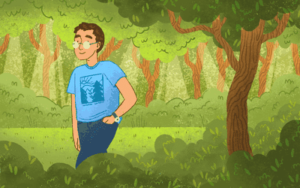
If you want to pursue training in this therapy, there are a few things you should keep in mind.
- First, make sure that the program has accreditation by a credible organization.
- Second, check to see if the instructors have the appropriate credentials and experience.
- Third, inquire about the length of the program and whether it includes an internship or practicum component.
- Fourth, ask about the program’s curriculum and what theoretical approaches are part of it.
- Finally, find out if the program offers any continuing education opportunities after graduation.
Pursuing training in this therapy can be a very rewarding experience. And it can lead to a career that is both personally and professionally fulfilling. With careful planning and research, you can find a program that is right for you and your goals.
Hearing From Experts
In this section, we will hear from three experts in the field of this therapy:
“Nature therapy is a unique and powerful modality that can help address a wide range of mental health concerns. I believe that everyone can benefit from spending time in nature, regardless of their specific needs.
“I often tell my clients that nature is the ultimate therapist- it is always there for us, it is non-judgmental, and it can heal us in ways that we never thought possible.” -Dr. Aaron Lerner, Director of the Nature Therapy Program at Lesley University
“Nature therapy is a relatively new field, but it is growing rapidly. There are now programs all over the world that offer training in nature therapy, which is a testament to its efficacy.
“I believe that nature therapy is an important modality because it offers something that other therapies do not- a direct connection with the natural world. This connection can be healing in and of itself, and it can also provide a sense of peace and calm that is often lacking in our busy lives.” -Julie Hadden, Executive Director of the Association for Nature-Based Counseling and Psychotherapy
Case Study
Smith is a 38-year-old man who has been struggling with anxiety and depression for the past few years. He has tried several different treatments, but nothing has seemed to help.
Smith’s doctor suggested that he try nature therapy. After some research, Smith decided to give it a try.
Smith began seeing a nature therapist once a week. During their sessions, they would go for walks in the park and talk about Smith’s anxiety and depression.
After a few months of therapy, Smith began to notice a change. He was less anxious and depressed, and he felt more connected to the world around him.
Resources
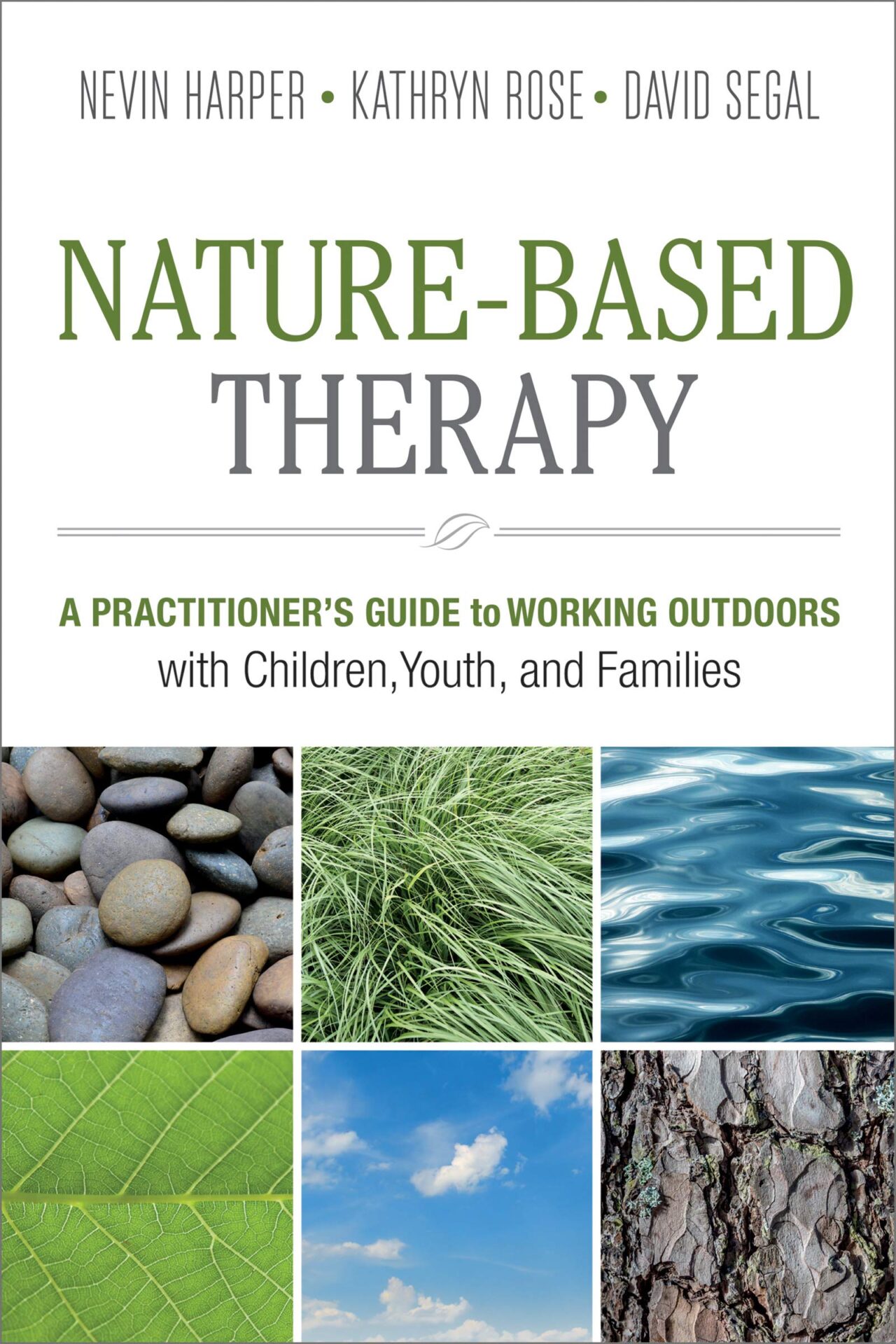
If you have an interest in natural therapy, there are a few resources that you can use.
- The first resource is the American Association for Nature Therapy. They offer a directory of certified nature therapists.
- The second resource is the International Association for Ecotherapy. They offer a directory of ecotherapists.
Conclusion
Nature therapy is a relatively new field, but there is a growing body of evidence that supports the idea that it can be an effective treatment for mental health conditions.
If you want to try this therapy, it is important to find a certified therapist who you feel comfortable with and who you feel safe with. There are several resources available that can help you find a qualified therapist in your area.
If you have any questions or concerns, be sure to speak with your doctor or mental health provider. They can help you decide if nature therapy is right for you.
A Word From Therapy Mantra
Your mental health — Your psychological, emotional, and social well-being — has an impact on every aspect of your life. Positive mental health essentially allows you to effectively deal with life’s everyday challenges.
At TherapyMantra, we have a team of therapists who provide affordable online therapy to assist you with issues such as depression, anxiety, stress, workplace Issues, addiction, relationship, OCD, LGBTQ, and PTSD. You can book a free therapy or download our free Android or iOS app.
